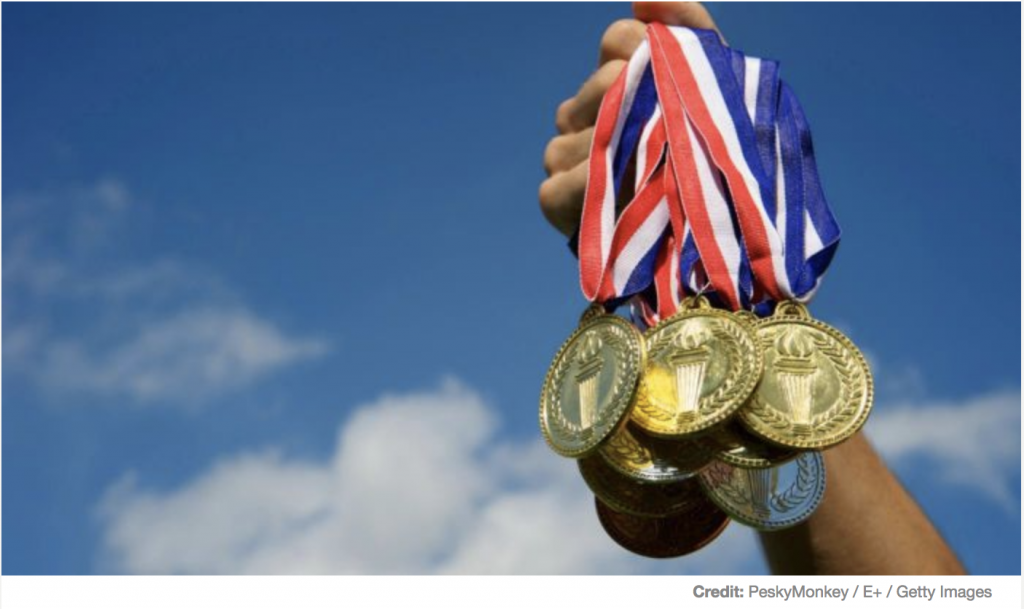by Emily Hangen
Emily Hangen is a National Science Foundation Fellow, a Robert L. and Mary L. Sproull University Fellow, and a graduate student pursuing her PhD in social psychology at the University of Rochester. Her research interests focus on motivation during competition and optimizing students’ academic motivation and achievement. To assess motivation and performance outcomes, her research applies both traditional self-report measures along with autonomic physiological indices. She has experience as a university course instructor, university teaching assistant, and tutor.
This summer, she’s teaching the Pre-College Programs Rochester Scholars (non-credit) course, Winning: The Psychology of Competition.
“A winner is just a loser who tried one more time.” –George M. Moore, Jr.
In his 2018 Winter Olympic debut, with adrenaline still pumping and just mere seconds into the start of the race, 24-year-old Simen Kruger crashed into the ground. Kruger frantically endeavored to free himself from entangled skis and poles, throwing aside his broken ski pole for a new one, and hurried off to catch his fleeting Olympic ambitions and the group of athletes now well ahead. Over a grueling hour-long race, Kruger dug deep and wowed the world, coming back from last place to cross the finish in first place, winning an Olympic gold medal!
No doubt about it, competition can be a powerful motivator. As a motivation researcher, I am fascinated with how competition can both push people to achieve their best but also how the pressures of competition can lead people to crumble.
When does competition help us? How can we avoid choking under the pressure? Is getting “psyched” before competing only good for athletes or can it help musicians, students, and workers do their best too? Is it healthy to be competitive? What are the dangers of getting too focused on comparing ourselves to others? These are just a few of the many questions I have asked, studied, or plan to explore with my students in a brand new Pre-College Programs course, Winning: The Psychology of Competition.
Unlike Kruger, I have not won any Olympic gold medals. Instead, I have channeled my love for competition into my research, conducting and publishing research on the effects of competition. I am currently a PhD candidate in social psychology here at the University of Rochester. Because of my foundation in social psychology, I am able to offer a unique perspective on competition, teaching about how psychological theories of social forces, emotion regulation strategies, and goal setting all factor into competitive performance.
Needless to say, one of the many advantages that excites me about this Pre-College Program is getting to explore two of my favorite topics: psychology and competition. Additionally, I hope to share scientifically-grounded practical advice for students who are also interested in psychological research and/or students who are looking to optimize their motivation and competitive performance.
Interested? Apply by May 30!


